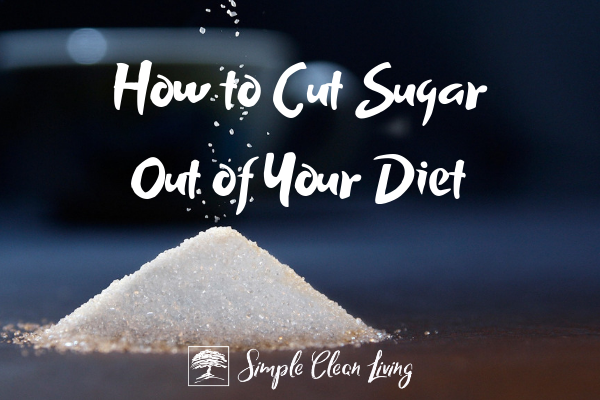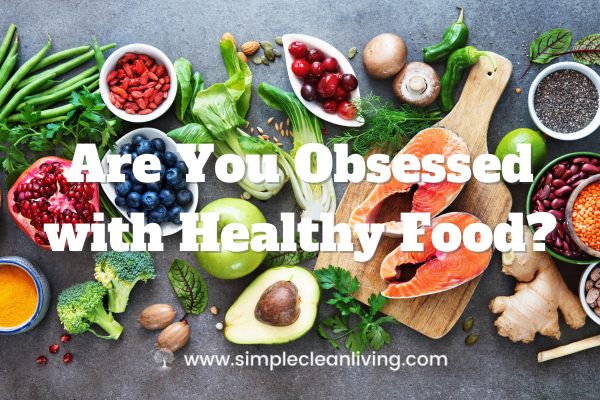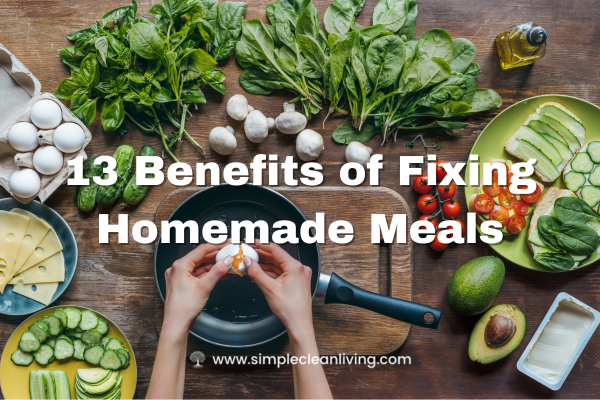Notice: I’m an affiliate for Amazon as well as other companies. Any links in this article may be affiliate links. I always appreciate it if you purchase something using my affiliate links. Doing so helps me to raise a little extra money that pays for the costs of running this site. And it allows me to continue bringing you quality content, all without costing you a thing! Thanks!
On my own journey, balancing blood sugar was a big part of helping me to have more energy. When I started to cut sugar out of my diet, I started feeling better. Let’s face it, we eat WAY too much sugar each day here in the US. Processed sugar is hidden in a whole lot more than just sweet products, so most people are eating much more than they know. And my sensitive self doesn’t do well on an overabundance of processed sugar!
I was on the “diet hamster wheel” for so many years through my 20’s to my 40’s. During that time I ate my fair share of “low-fat” treats. The problem with most low-fat goodies is that to compensate for lowered fat content they usually add something else…usually sugar! So even when I thought I was being “good” I was definitely eating way too much sugar.
Sugar may be sweet, but it’s not so sweet for our health. Much of the disease that is so common today is linked to high sugar consumption. Unfortunately, sugar-filled foods are so addictive that many people have a difficult time avoiding them.
If you are going to reduce the amount of sugar you are eating, you need to know what foods to eat instead. You also need to understand how important it is to read labels! And you need to know how to avoid sugar cravings. It doesn’t have to be as difficult as many make it, with just a little understanding and a little planning.
Why you should cut down on sugar in your diet
The main reason why you should consider removing the processed sugar from your diet is to help you avoid the pitfalls of blood sugar imbalances. These are very common for the overly-stressed crowd! Blood sugar imbalances can contribute to health issues such as anxiety, metabolic syndrome, and diabetes. But significantly reducing or eliminating refined sugar from your diet can get you back on track!
When you eat natural whole foods such as meat, fruit, and veggies, you support your health by providing your body with the nutrients it needs to function. You also expose yourself to far fewer chemical additives which can further stress the body!
As a species, humans have been eating whole, real foods for millions of years. Our bodies are designed to consume food from nature. The human body was not designed to eat an endless supply of refined sugar.
But people have become used to the convenience of processed foods. To the point that a big complaint that many have is that they don’t have the time to cook for a real food diet. Many people struggle because a healthy way of eating can require extra preparation time. They have become accustomed to quick, highly processed meals and fast food. And many feel that cooking regularly takes too much time.
Of course, there are simple meal prep hacks that you can use to overcome this problem. Preparing meals in advance or even creating freezer meals can make real food much easier! Then you’ll always have healthy food available, even when time is tight.
Reading ingredient labels
Whole, natural foods don’t require ingredient labels. But processed foods can be filled with excess sugar. So if you are going to consume any processed foods, you need to begin reading the labels. That way you’ll know what you are eating. While you may be looking for “sugar” on a food label, it can be hidden in plain sight. In fact, over 70% of all processed foods contain added sugars.
Other names for sugar:
- barley malt
- beet sugar
- brown sugar
- cane sugar
- corn syrup
- dehydrated cane juice
- dextrose
- fructose
- fruit juice
- glucose
- high fructose corn syrup
- honey
- lactose
- maltodextrin
- mannitol
- maple syrup
- molasses
- sucanat
- sucrose
- turbinado sugar
Think that added sugar is only in sweet foods? Think again! Savory foods such as soups, condiments, and salad dressings can be full of added sugar! That’s why reading labels is important. “Natural” processed products are NOT immune to added sugars either!
Another ingredient to be on the lookout for is flour. Flour isn’t sugar, but it is a refined carbohydrate. Refined carbohydrates are turned into sugar in the body. People who experience big blood sugar fluctuations should avoid flour-based foods. This will help them to balance blood sugar levels more easily.
Cut sugar in your beverages
Some of the most popular beverages people drink are loaded with sugar. Soda, sports drinks, sweet tea, many specialty coffee beverages, and most other flavored drinks, are very high in sugar. These beverages should not be consumed regularly and should be avoided when possible.
Even natural fruit juices that have no added sugar are high in sugar and can be problematic for blood sugar levels. Eating whole fruit is a much better option than drinking fruit juice. The vital nutrient content of fruits is destroyed during the juicing process. And most of the beneficial fiber is removed as well.
Pasteurized skim milk is far from being the best choice too. In the pasteurization process, the fat is removed. Vital nutrients are destroyed and most of what is left is milk sugar.
Choose this instead
It is much better to opt for plain filtered water or sparkling water. Want to add a little flavor? Add a few slices of your favorite berries, or a slice of a cucumber and a few sprigs of mint! This can help you to add a little something to make your water a little less boring. And since most people are mildly to moderately dehydrated, it can help restore those levels as well!
Some of the most popular beverages people drink are loaded with sugar. Soda, sports drinks, sweet tea, many specialty coffee beverages, and most other flavored drinks, are very high in sugar. These beverages should not be consumed regularly and should be avoided when possible.
Even natural fruit juices that have no added sugar are high in sugar and can be problematic for blood sugar levels. Eating whole fruit is a much better option than drinking fruit juice. The vital nutrient content of fruits is destroyed during the juicing process. And most of the beneficial fiber is removed as well.
Pasteurized skim milk is far from being the best choice too. In the pasteurization process, the fat is removed. Vital nutrients are destroyed and most of what is left is milk sugar.
It is much better to opt for plain filtered water or sparkling water. Want to add a little flavor? Add a few slices of your favorite berries, or a slice of a cucumber and a few sprigs of mint! This can help you to add a little something to make your water a little less boring. And since most people are mildly to moderately dehydrated, it can help restore those levels as well!
How to handle sugar cravings
For many, one thing that derails their attempt to cut back on sugar is intense cravings. Cravings can be the result of low blood sugar levels or brain chemical imbalances. The good news is that cravings can usually be overcome by adding more protein and quality fat to your diet. The additional protein should come from high-quality pasture-raised animal meat. Consuming additional protein and fat will slow down the digestion of the carbohydrates you eat. That can significantly reduce sugar cravings. It can also help provide the amino acids your brain needs to produce essential neurotransmitters, helping you to feel better.
What about fruit?
Fruit is a natural whole food and is one of the healthiest food groups we can eat. Whole fruit contains fiber and vital nutrients needed to help the body digest its natural sugar. Because of this, eating fruit is less likely to cause blood sugar fluctuation. But consuming fruit can still be a problem for those with blood sugar imbalances.
If you struggle with blood sugar issues, then opt for fruits that are lower in sugar. Berries, apples, lemons, and limes are the lowest in sugar content. Mangoes, cherries, bananas, oranges, and grapes are all higher-sugar fruits and should be limited.
Kiss artificial sweeteners goodbye
Artificial sweeteners provide the sweet taste of sugar, but without the calories. But most artificial sweeteners are riskier for your health than sugar! Popular synthetic artificial sweeteners such as aspartame and sucralose can be toxic to the body. And although they are commonly used in “diet” foods, they have been shown to increase appetite and may contribute to weight gain. These artificial sweeteners can also contribute to more serious issues such as metabolic syndrome and neurological issues.
If you are looking for a healthier, cleaner way of eating, avoid these artificial sweeteners. Want to know what to look for on food labels? Aspartame is commonly available as NutraSweet or Equal and sucralose is commonly known as Splenda.
A better sweetener option
As you begin to cut sugar and other sweeteners from your diet, your taste buds will change. It is not uncommon to find fruit tasting sweeter. Luckily, there are some great options if you need a natural sweetener. Stevia is a natural, herb-based sweetener that can be used in moderation. Stevia doesn’t typically affect blood sugar. And it is by far a much better alternative than synthetic artificial sweeteners. It’s much sweeter than sugar, so you can use it in smaller amounts. Choose a natural brand of stevia that’s certified organic. Coconut sugar is another that doesn’t raise blood sugar levels and can be found in organic varieties as well. Monk fruit is a newer sweetener on the market. It too is great for not spiking blood sugar levels. Two others that many people use are allulose and erythritol.




